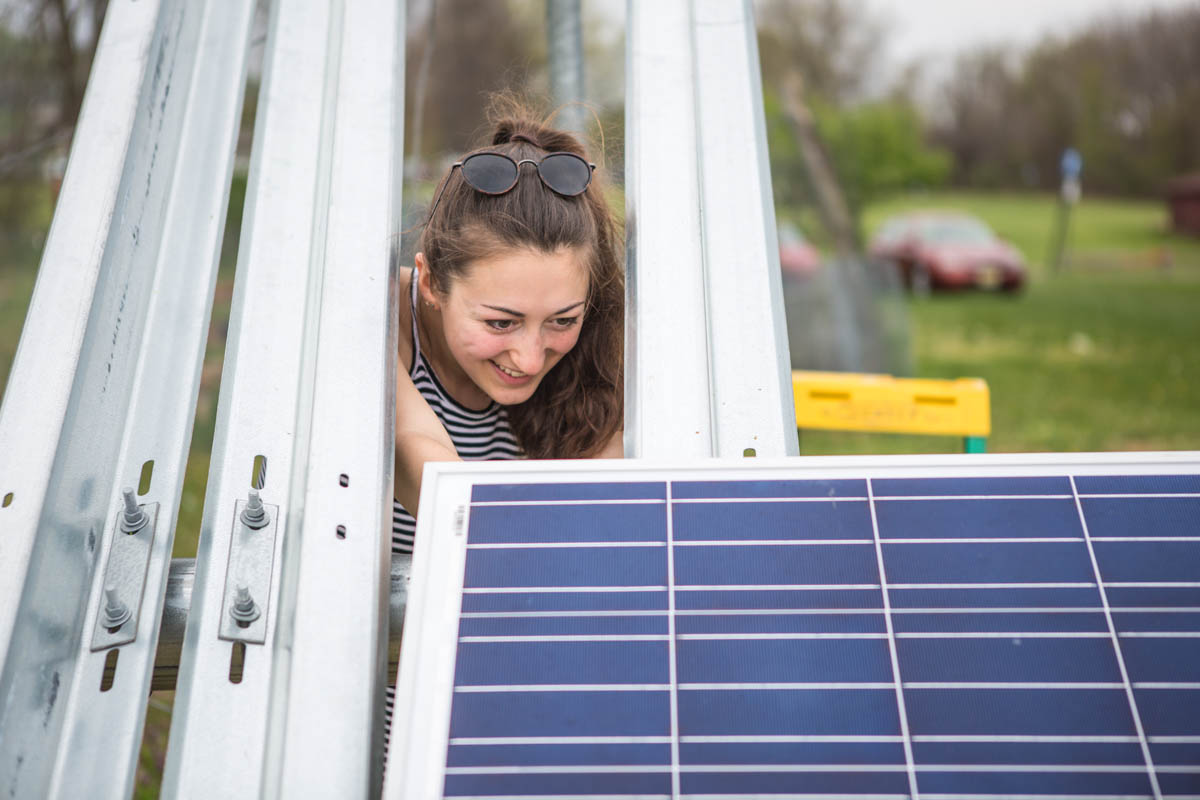
A living laboratory is a research concept that bridges the gap between the “ivory tower” and the “real world.” It allows students to apply theoretical concepts to tangible problems and it gives professors the opportunity to incorporate fresh ideas into their solutions. It is a cutting-edge pedagogy that only the most innovative universities utilize. At Lehigh, students, faculty, and staff utilize the campus as a living laboratory on topics such as dining and food services, buildings, purchasing, energy, behavior change, and more. Multidisciplinary student research across campus generates potential solutions that positively impact the institution.
One such example of Lehigh’s living laboratory is through a 300 level engineering course called “Energy: Issues & Technology” under the joint-instruction of Professor Jonas Baltruitis and Sustainability Officer Delicia Nahman. At the start of the semester, students in the class receive campus data-sets including building-specific energy usage, transportation data, food-related statistics, and more. As they explore broad-scale issues in the class around energy usage and supply, fossil fuel technologies, renewable energy alternatives, and environmental impacts, they begin to think critically about how to apply these concepts to our campus. The students then identify a problem on campus by combining theory with the data and propose a solution that will help Lehigh meet, or exceed, its Campus Sustainability Plan 2020 goals. Here are some examples of the student proposals:
- Reduce energy consumption and improve water capture by expanding Lehigh’s “green roofs”
- Build a greenhouse to create a “Real Food” farm to supplement our dining services
- Utilize a compost pile to create methane, which could become a heat-source for a greenhouse
- Reduce energy consumption by expanding Lehigh’s solar panel field
- Organically remove arsenic from Lehigh’s unused Stabler property with soil-cleaning plants
Through experiential learning opportunities like this that explore the complex intersections of environmental, social, and economic factors underlying today’s challenges, students graduate from Lehigh prepared to lead, ready to solve today’s challenges. These type of meaningful experiences also allow Lehigh students to be in a position to create truly sustainable solutions for our resource-strapped future. As such, utilizing the campus as a living laboratory and applying theory to life is a powerful transition from a student’s college experience to his/her future career.
